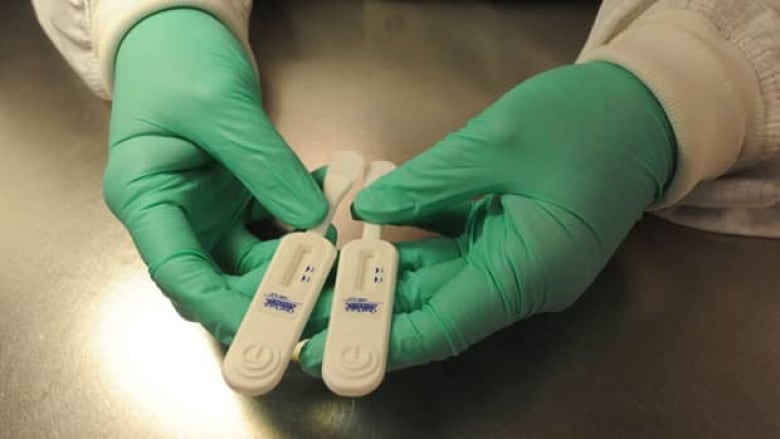FDA approves 1st rapid take-home HIV test

The U.S. Food and Drug Administration has approved the first over-the-counter HIV test, allowingpeople to test themselves for the virus that causes AIDS in the privacy of their homes.
The OraQuick test from OraSure is designed to detect the presence of HIV using a mouth swab within 20 minutes.
Government officials estimate one-fifth, or about 240,000 people, of the 1.2 million HIV carriers in the U.S. are not aware they are infected. Testing is one of the chief means of slowing new infections, which have held steady at about 50,000 per year for two decades.
In Canada, the number of people with HIV, including AIDS, continues to rise, from an estimated 57,000 in 2005 to about 65,000 by the end of 2009, a 14 per centincrease, according to the AIDS Committee of Toronto (ACT).
Key facts on HIV/AIDS:
- HIV has claimed 25 millionlives over three decades; about 34 million people were living with HIV in 2010.
- HIV infection can be diagnosed through blood tests detecting presence or absence of antibodies and antigens.
- A cure for HIV has not been found, but patients on antiretroviral drugs can control the virus and lead healthy lives.
- In 2010, around 6.6 million people with HIV were onantiretroviral therapy in low- and middle-income countries, but overseven million others are waiting for access to treatment.
Source: World Health Organization
FDA officials said the test is aimed at people who might not otherwise get tested.
"The availability of a home-use HIV test kit provides another option for individuals to get tested so that they can seek medical care, if appropriate," said Dr. Karen Midthun, director of the FDA's Center for Biologics Evaluation and Research.
Test not completely accurate
FDA officials stressed in its approval announcement that the test is not 100 per cent accurate.
A trial conducted by OraSure showed the home test only correctly detected HIV in those carrying the virus 92 per cent of the time. That means that the test could miss one person for every 12 HIV-infected peopleusing the kit.
The test was accurate 99 per cent in ruling out HIV in patients not carrying the virus. That means the test would incorrectly identify one patient as having HIV for every 5,000 HIV-negative people tested.
The FDA previously approved several HIV test kits designed to be used at home, although those kitswhich usually require a blood samplemust be sent to a laboratory to be developed.
Based in Bethlehem, Pa., OraSure has marketed a version of OraQuick to doctors, nurses and other health care practitioners since 2004. When used by professionals, the test is shown to accurately identify both carriers and non-carriers 99 per cent of the time.
While it's not clear why the test appears less accurate in consumer trials, company researchers said they expected the test's specificity to drop when used by consumers versus professionals.












_(720p).jpg)


 OFFICIAL HD MUSIC VIDEO.jpg)
.jpg)



























































































